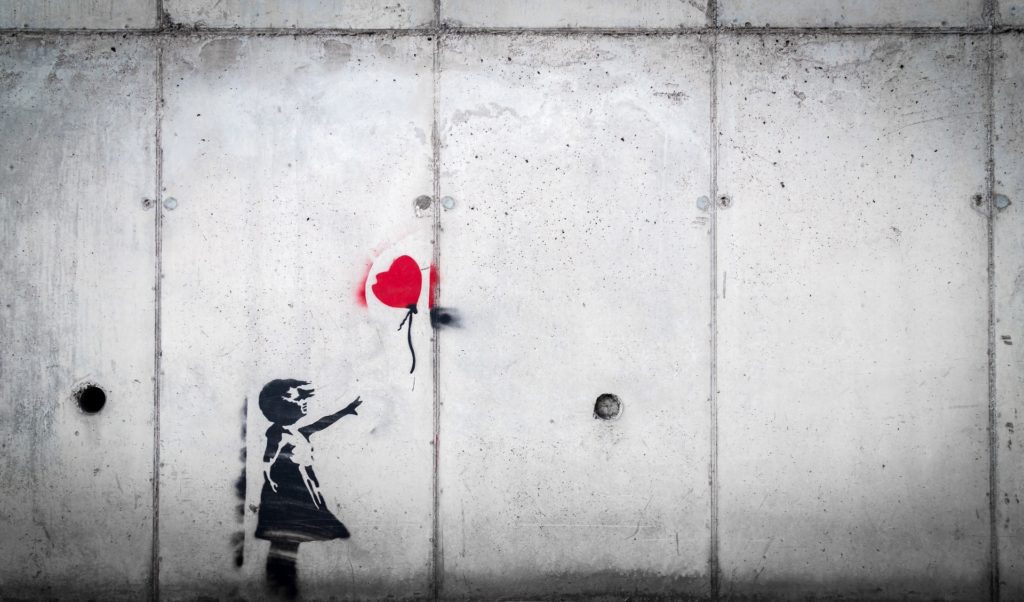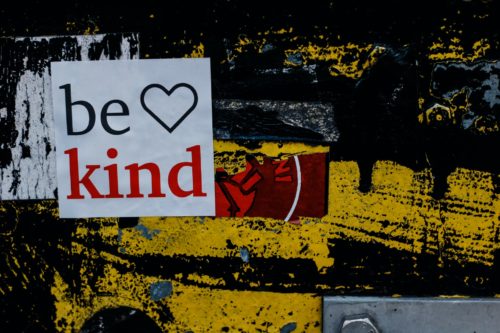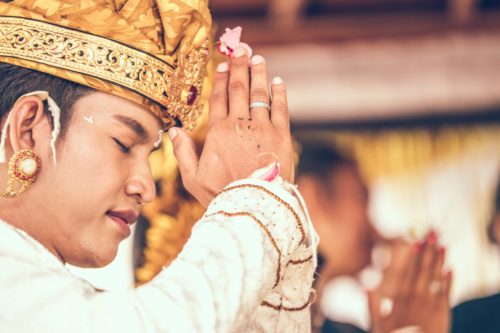Happy – a simple adjective that proposes the basic feelings of joy and contentment. Such a small word with a simple definition. As children, the first emotion we experience would be the little spark of energy we get whenever we feel happy. Some would even say that all things on earth are connected, through joy and happiness.
Despite being presumably so trivial, the term happiness has a broad meaning to it. It is often described as a feeling that isn’t experienced by everyone, when in fact, it is one of the key elements in leading a healthy and fruitful life. Not only does happiness contribute to a smooth lifestyle and towards a person’s good psychological state of mind, but it also works in surprising ways with respect to a person’s body. However, freedom can be as equally important for us.
While we know that the benefits of living a happy life are truly remarkable – the question persists: is it better to be happy than free?
Is it worth giving up your freedom in order to be happy? Can you even be happy if you are not free?
What is True Happiness?
A vast majority of individuals spend their entire life searching for happiness around them – whether it’s in people, places, or achievements. However, regardless of this endless pursuit, some people are still not truly happy at the end of the day.
If we take a moment to glance around us, we can infer that each person around us is only wishing to be happy and to avoid their suffering. Yet, we continue to confuse happiness with a momentary feeling of pleasure or joy. Instead of searching for true peaceful happiness, we turn to find satisfaction in experiences, material possessions, or even the relationships we form with people.
While your new book may give you joy the second you purchase it, the happiness is likely to die down in a day or so. Similarly, a scrumptious chocolate cake may satisfy your cravings at the moment but will definitely not bring you happiness in the long run.
Even relationships with people can be temporary. Be it your friends or a lover – all human relationships by nature are obviously not perfect, flawed, and filled with ups and downs. By letting your own happiness be in the hands of other people, people that elevate or downgrade your mood by their reactions to you, you could be eliminating the chances of ever finding real happiness within yourself.
Just like with seeking abundance of love in exterior things outside of us, when you’re happiness is depended on something are you really free? Aren’t happiness and freedom go hand in hand – can one live a happy life when they’re constantly on the lookout for something?
How is Happiness Defined?
Simply, temporary feelings such as pleasure or joy can be eliminated from the definition of true happiness. While the ‘little things in life’ may light up your mood on a bad day, or passing thoughts about the magic of life through magical sayings, can remind you they can be misleading and bring suffering when the momentary high dies down.
A better way to describe true happiness would be through contentment – or the sense of being at ease. While contentment is also a difficult expression to put into words, it does simply mean being satisfied with yourself, and wherever you are in life. Through this realization and acceptance of self-worth, one can be on their way to find true happiness, and truly be free.
Freedom: The Basics
Freedom is popularly defined as the capability of a person to make his own decisions and to determine their own actions.
Different groups of people perceive this term in different ways. To some, freedom is being able to earn enough to send themselves on extravagant vacations. To others, it can be living in a place where they are liberated from tough government policies and restrictions. Then come the people who believe in nomadic lifestyles of moving from place to place as their hearts please and earning enough to lead life on their own terms. All these takes are diverse to no extent, however, at the end of the day, they are all the perceptions of how people understand and experience freedom.
To say freedom is dynamic won’t be wrong, the same as life is dynamic. Every person holds within them an entire world, a unique form of existence, that has its own form and path for expressing itself. And expressing who you are to the fullest can be achieved only when you are genuinely free. People’s take on the understanding of freedom changes with time. This is mainly because one experiences new things whilst growing up and learns to prioritize different things.
As a result, the way you define freedom may be different now than to what it was five years ago – and that’s okay. Freedom can be highly subjective. But the problem really arises when one fails to determine where their freedom lies or starts to associate their personal happiness with their freedom and liberty to do certain things in life.
Understanding ‘Freedom’ as a Concept
Before understanding how freedom may or may not lead to happiness, or being an inseparable part of happiness, the concept needs to be understood on its own.
Initially, one needs to accept that their idea of freedom will always differ from those of others. This is not always easy to understand, as many familial argues and fights very well demonstrate. Since ‘freedom’ depends heavily upon where you stand in life or the kind of people that you are surrounded by, there can be many varying definitions of the same word simultaneously.
Secondly, freedom will change as your life changes. As with all emotions, feelings, and thoughts, freedom itself cannot remain static. You will reach such highs or lows in life that make you question your previous definition of freedom – only to realize that you no longer feel liberated or free to make your own choices, and neither does this bring you any happiness.
While this emotional rollercoaster may be overwhelming for many, the key takeaway from this realization is that your perspective towards freedom can change and you could still be feeling free. The only difference this new perspective would bring is determining what brings you freedom and peace now, keeping in mind all of the variables that are constantly evolving as you grow up.
The feeling of being free is truly beautiful, and everyone should be encouraged towards finding it, overcoming their fears and limiting beliefs and thoughts. However, the pursuit of finding freedom may last forever and that should be something you wholeheartedly accept.
When you think about freedom, don’t limit yourself to only consider the materialistic things that provide you a feeling of being ‘free’ – such as your own house, a car, or a good job. Instead, focus on emotional intelligence and your innate ability to be aware of what makes you happy and why. Once you determine how your perception of freedom can differ over time, the pursuit of finding happiness becomes much simpler.
Freedom or Happiness: The Debate
Here’s the real question: is it better to be happy or to be free?
These two significant ideals have been part of the popular debate for centuries now, with no actual resolution found to the conflict. While some people deem happiness to be more important, others believe that freedom should be prioritized, whereas some claim that they are the same thing – 2 sides of the same coin.
Another interesting perspective, though, is why make the choice at all? If you understand that happiness and freedom are equally important, you will not be forced to prioritize one over the other.
Unfortunately, people are often forced into making the tough choice between their happiness and their freedom constantly through different phases of their lives. Struggling with providing for themselves and their families, politics, religion, and conflicting values within their environment and people surrounding them, hence the debate persists.
Does Freedom Lead to Happiness?
For many people, finding themselves liberated and free is the only way to be genuinely happy. The need for understanding which emotion to prioritize persists – as some imagine a future where liberty remains restricted and people are kept under control to maximize their happiness. By keeping them oblivious to the dangers of the world, people are tricked into believing they are free, and thus can be kept happy instead of worrying.
On the other hand, there are many proponents of freedom. This belief, famously advocated by Benjamin Franklin, states that if one can give up essential liberty for the sake of a little safety, they do not deserve liberty nor safety.
In this scenario, freedom seems important, but is also only seen as a pathway to happiness. If freedom is actually chosen over happiness, it may be a wise decision to make. However, one must be careful that their feelings of freedom promise long-term happiness and contentment for themselves – which can be far more valuable than a temporary sense of safety received by sacrificing your freedom.
But here’s the unfortunate truth: freedom cannot always result in happiness. While being liberated enough to take your own decisions and live life on your own terms seems extremely appealing right now, it may not be true reason for happiness. The main reason behind this would be that in the pursuit of chasing freedom, one may be forced to sacrifice multiple things, and thus lose their sense of happiness during the way.
By taking this way, choosing happiness over freedom would appear to be a wiser decision.
To be Happy, or To Be Free?
Conclusively, one thing that can be said for sure is that this debate will go on, as it has no easy answer. While freedom could lead to happiness in certain situations, it is unlikely to always be that way, as oftentimes the path for freedom is filled with unhappiness. By spending your life chasing freedom or independence, one can miss out the joy, happiness, and beauty that lies in the little and simple things of life.
But there is one way that is leading to freedom that is very bold. A way that claims that surrendering to everything that life puts in front of you, can not only liberate you, but to enable you to find true and unshakable happiness and satisfaction.
A way to awaken into a new awareness.














